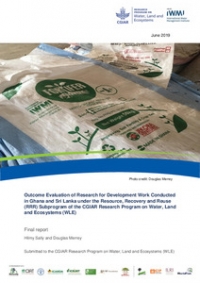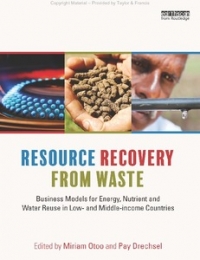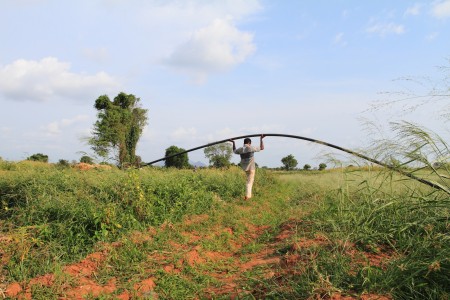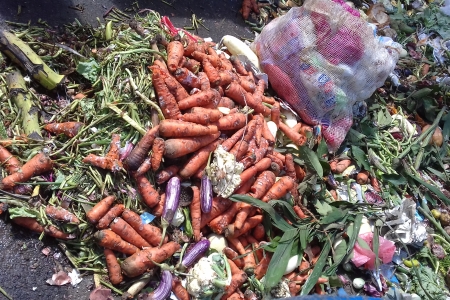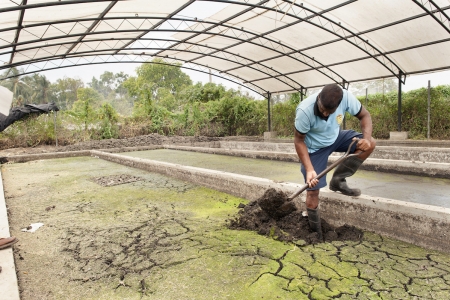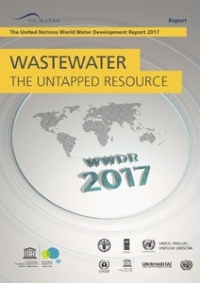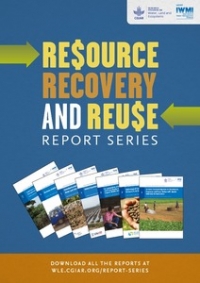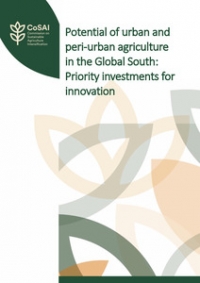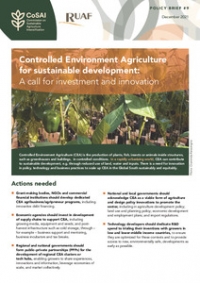Reducing pressure on natural resources requires us to bring circular economies into the mainstream. The question is, how can we make this transition in a way that delivers positive outcomes – and is sustainable?
An independent evaluation of the Resource Recovery and Reuse (RRR) subprogram, undertaken by the CGIAR Research Program on Water, Land and Ecosystems (WLE) and International Water Management Institute (IWMI), indicates that an outcome-based management approach could be the answer. The study concluded that the “quality of program management” was critical to the initiative achieving “significant outcomes that have the potential to lead to major long-term impacts." These lessons learned my prove useful for other research for development (R4D) work.
The RRR subprogram, carried out under WLE’s Rural-Urban Linkages (RUL) Flagship, has been supporting innovative waste management research and business models since 2011. It has reported impact, including contributions to government policy and development of local sanitation facilities in South Asia and Africa.
The program grew out of IWMI’s work on wastewater use in the late 1990s and early 2000s. IWMI initially worked to raise awareness and quantify the extent of wastewater use in agriculture, before assessing how partially treated or even untreated sewage might be safely used for growing food. Most recently, it has focused on identifying appropriate business models for turning urban liquid and solid waste into economic assets.
“Our resource recovery and reuse work has developed a public-private partnership to raise fish in treated wastewater, and established facilities to produce organic fertilizer from fecal sludge, among other efforts,” explains Pay Drechsel, research program leader for WLE/IWMI. “We have combined technical analysis with institutional, policy and business studies.”
The WLE/IWMI subprogram had identified (i) policy change, (ii) international influence, (iii) private sector engagement and (iv) capacity development as anticipated routes by which its RRR research would contribute to development outcomes, from local to global levels. The evaluators noted several outcomes of the RRR program that had, indeed, resulted from these impact pathways.
They include the Sri Lankan government being encouraged to include septage management within a new sanitation policy and the Ghanaian Government to include waste compost in its fertilizer subsidy program; the inclusion of research findings in a number of United Nations publications (including Wastewater the Untapped Resource; Water pollution from agriculture: a global review; guidelines for safe water use; a farmer field school training handbook; and World Health Organization Guidelines on sanitation and health); several new public-private partnerships based on RRR business models to turn waste into commercial products in Ghana; and development of curricula on RRR for engineering and business schools, to support postgraduate students.
Spreading the word
The evaluation credits knowledge dissemination as playing a key role in delivering these outcomes. RRR knowledge products such as WLE’s report series were found to have contributed to the observed outcomes significantly at an international level, and to some extent in Ghana and Sri Lanka. The evaluators found that, in Ghana, the RRR program contributed significantly to increasing the interest in recycling of urban waste into commercial products. They noted that the influence of the RRR program on international public goods would not have been possible without this on-the-ground experience. Similarly, the influence on Sri Lanka’s septage policy only came about because WLE/IWMI had demonstrated the concept in Ghana.
The appraisers concluded that effective leadership, the long-term and highly focused nature of the research, flexible funding support, strong individual and institutional long-term partnerships, the quality of the research products and efforts to develop local capacities had all contributed to the success of the subprogram.
The lessons learned have the potential to inform future WLE/IWMI research, as well as other development initiatives seeking to bring circular-economy projects to fruition.
“The evaluation has demonstrated that implementing long-term research programs and basing outcomes on a robust theory of change can bring about positive development, with valuable lessons for our program as a whole,” says Izabella Koziell, WLE Program Director.


